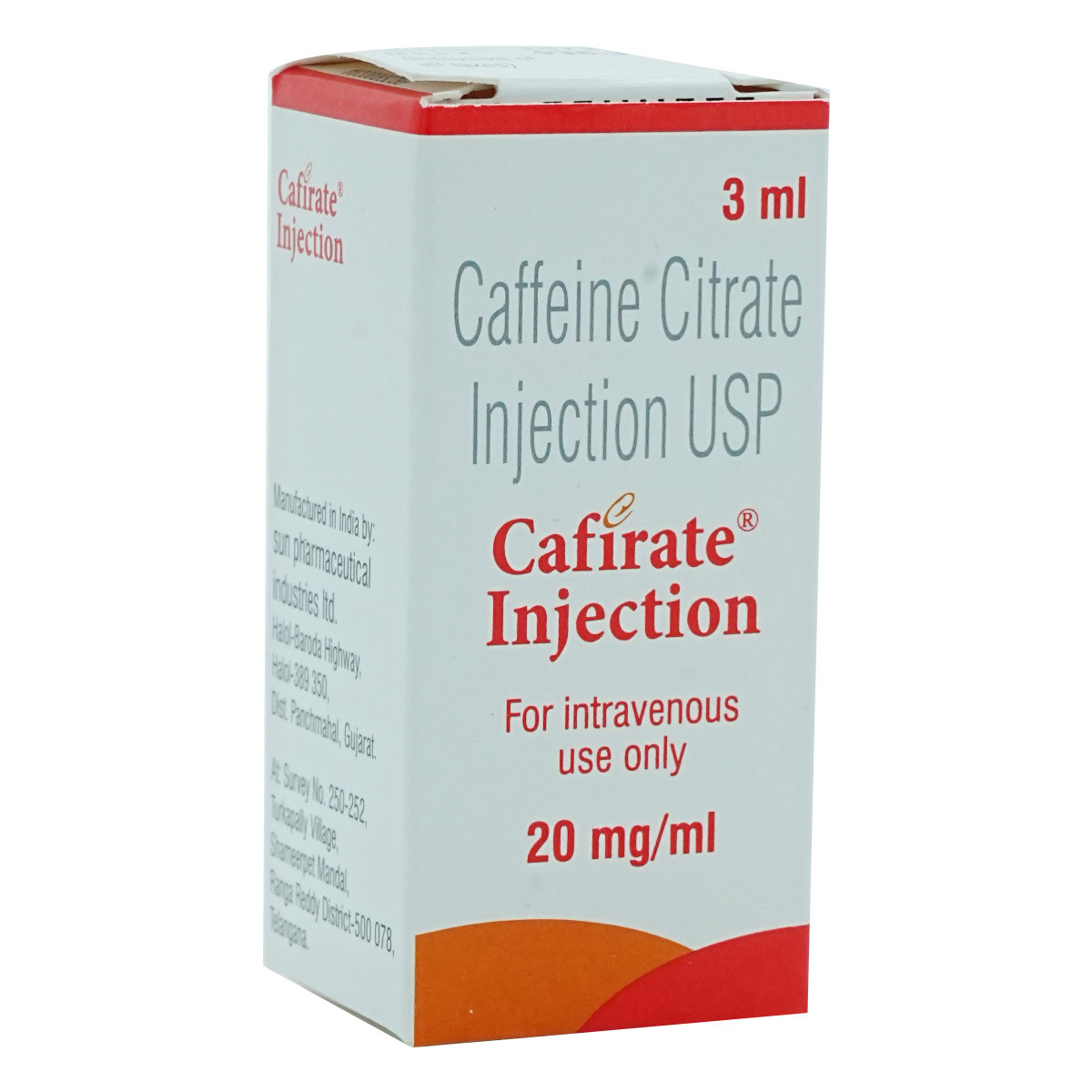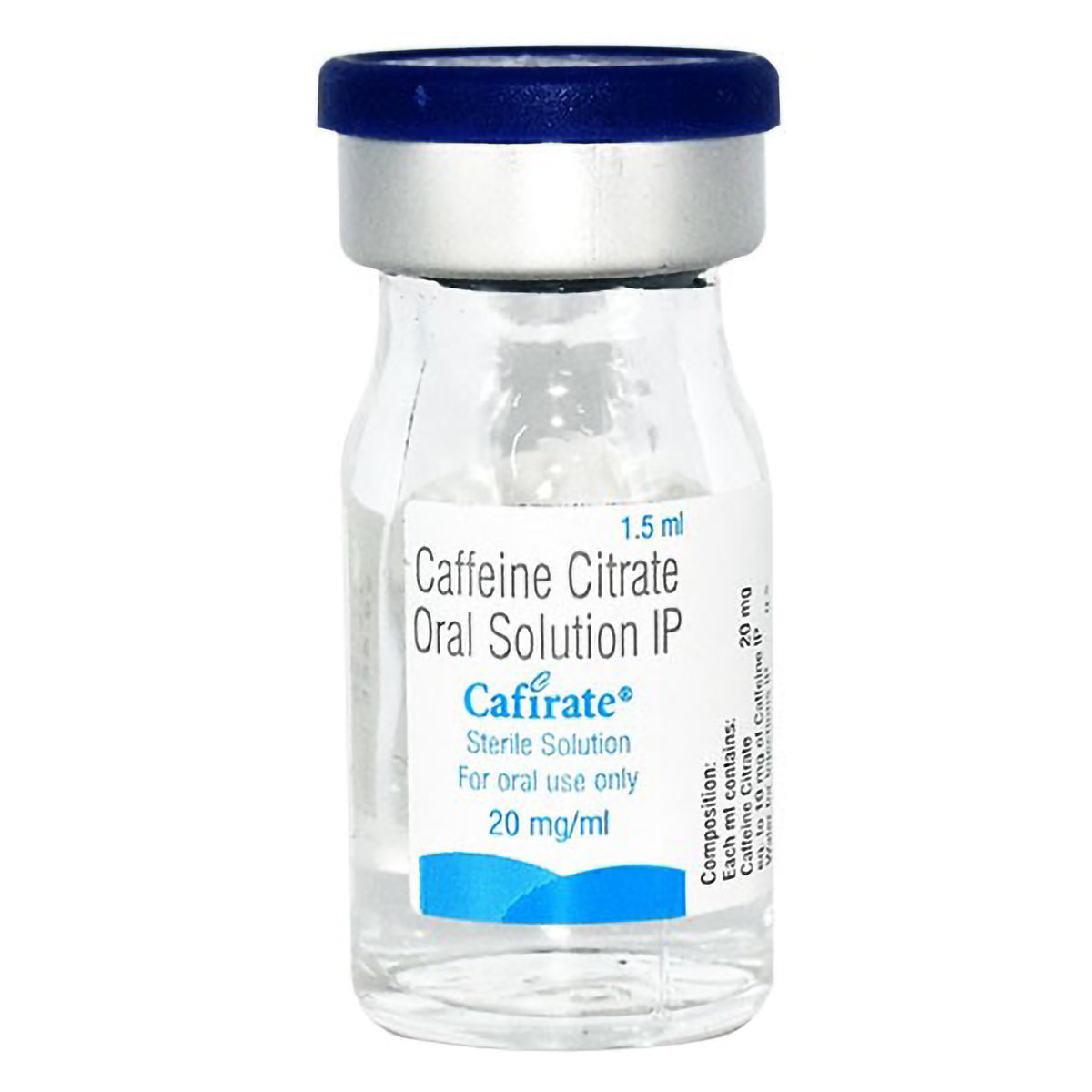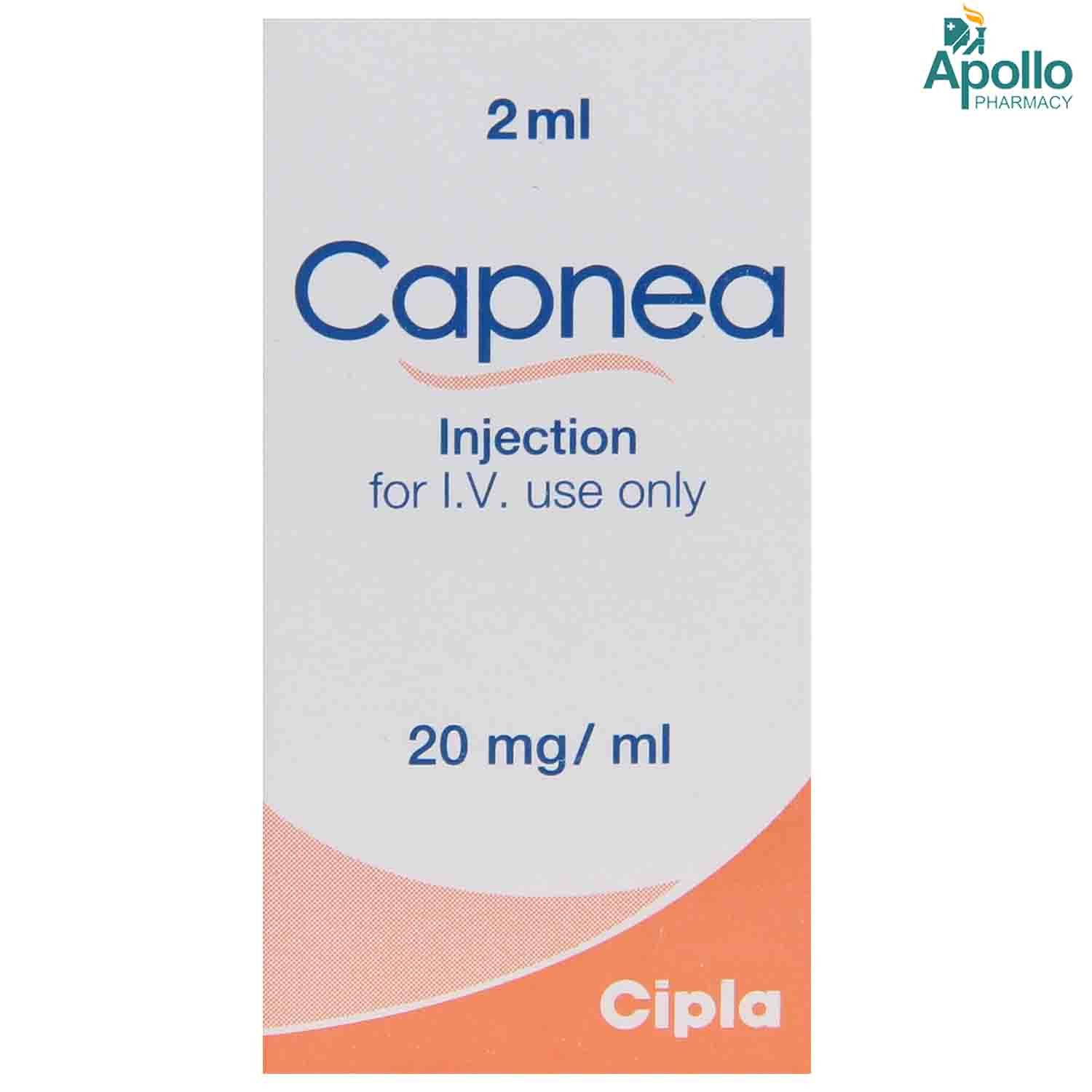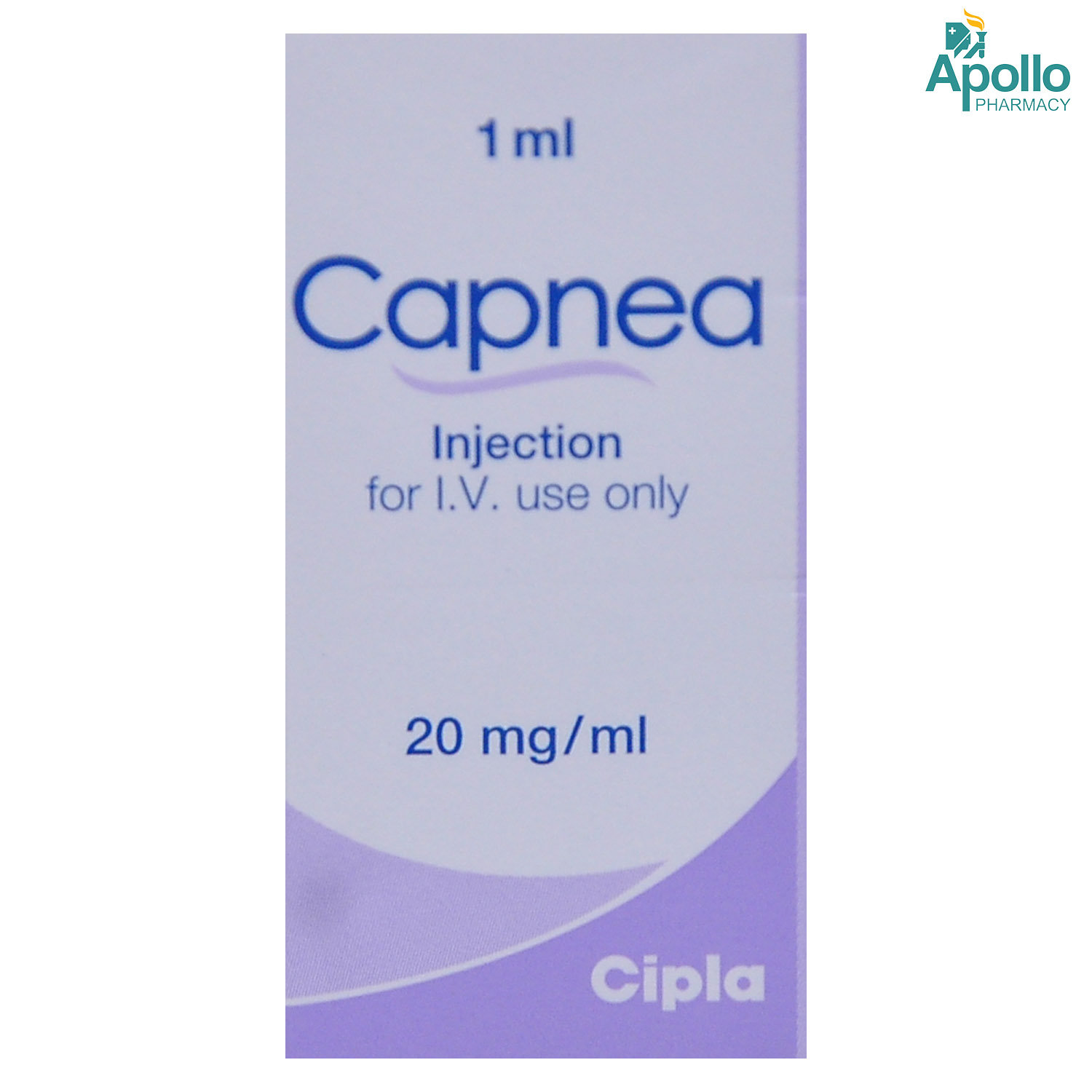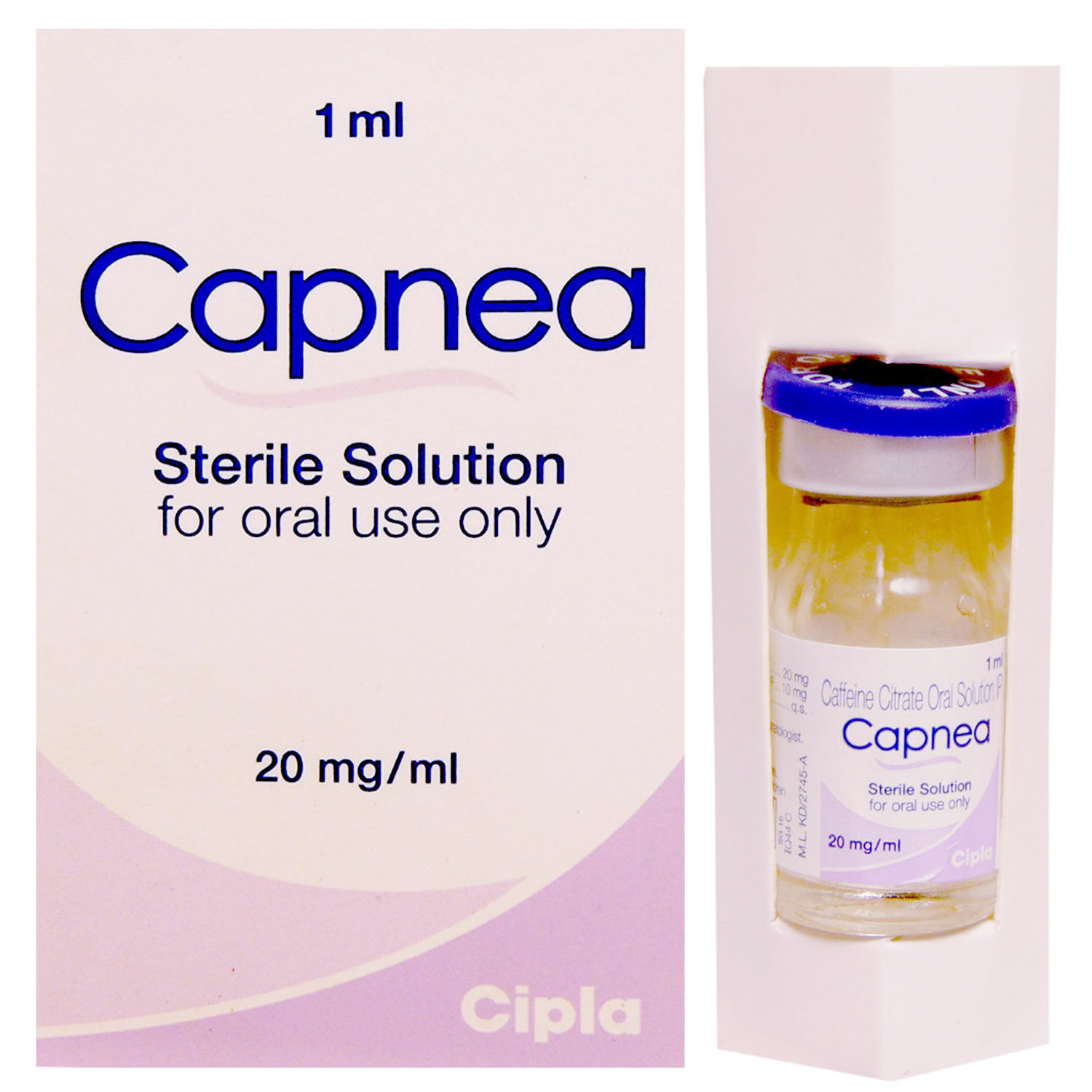Caffeine Citrate
About Caffeine Citrate
Caffeine Citrate belongs to a group of medicines known as methylxanthines. It is used to treat primary apnoea of premature newborns (interrupted breathing in premature babies). Apnea is a condition where breathing interrupts and causes abnormal heart rate and oxygen saturation alterations. It is a common occurrence, particularly in premature infants.
Caffeine Citrate contains 'Caffeine Citrate', which belongs to the central nervous system (CNS) stimulants class. It works in three different ways. Firstly, it is the adenosine receptor antagonist; secondly, it is a phosphodiesterase inhibitor. And thirdly, it is an active intracellular calcium mobiliser. Collectively Caffeine stimulates the respiratory centre, sensitising it to hypercapnia. Thereby Caffeine Citrate effectively regulates the mean respiratory rate and tidal volume, improves pulmonary blood flow, decreases carbon dioxide sensitivity and enhances diaphragmatic function and breathing pattern.
Caffeine Citrate should be used as prescribed by your doctor. Your doctor will determine the suitable dosage based on your infant's medical conditions. In some cases, Caffeine Citrate can cause side effects like tachycardia (fast heartbeat), arrhythmia (irregular heartbeat) and hyperglycaemia (increased sugar in blood or serum). These side effects are not prevalent and vary from person to person. Consult your doctor if these symptoms continue or worsen. They may be able to recommend strategies to avoid or minimise certain side effects.
Inform your doctor about the complete medical history of your infant. If you are nursing your infant is being treated with this medication, avoid drinking coffee or using any other caffeine-containing products since Caffeine passes into breast milk. This medication should be used with caution in infants with impaired hepatic or renal function. Before fixing the dose, your doctor may assess baseline serum caffeine levels in children born to caffeine-consuming mothers.
Uses of Caffeine Citrate
Medicinal Benefits
Caffeine Citrate contains 'Caffeine Citrate', which belongs to the central nervous system (CNS) stimulants class. It works in three different ways. Firstly, it is the adenosine receptor antagonist; secondly, it is a phosphodiesterase inhibitor. And thirdly, it is an active intracellular calcium mobiliser. Collectively Caffeine stimulates the respiratory centre, sensitising it to hypercapnia. Thereby Caffeine Citrate effectively regulates the mean respiratory rate and tidal volume, improves pulmonary blood flow, decreases carbon dioxide sensitivity and enhances diaphragmatic function and breathing pattern.
Directions for Use
Storage
Side Effects of Caffeine Citrate
- Tachycardia (fast heartbeat)
- Hyperglycaemia (increased sugar in blood or serum)
- Arrhythmia (irregular heartbeat)
Drug Warnings
Inform your doctor about your infant's medical history. If you are breastfeeding and your infant is being treated with this medication, avoid drinking coffee or using any other caffeine-containing products since caffeine passes into breast milk. Caffeine Citrate should only be used in a neonatal intensive care unit where adequate patient surveillance and monitoring facilities are available. Treatment should begin under the supervision of a neonatologist with experience in neonatal intensive care. This medication should be used with caution in infants with impaired liver or kidney function.
Drug Interactions
Drug-Drug Interaction: No interactions were found or established.
Drug-Food Interaction: No interactions were found or established.
Drug-Disease Interaction: No interactions were found or established.
Drug-Drug Interactions Checker List:
Safety Advice

Alcohol
cautionCaffeine Citrate is intended to use in premature newborns/neonates.

Pregnancy
cautionCaffeine Citrate is recommended to be used only in infants.

Breast Feeding
cautionCaffeine Citrate is intended for use in newborns/neonates only. If your infant is being treated with this medication, avoid drinking coffee or using any other caffeine-containing products since caffeine passes into breast milk.

Driving
cautionCaffeine Citrate is intended to use in premature newborns/neonates.

Liver
cautionCaffeine Citrate should be used with caution in infants with impaired hepatic or liver function.

Kidney
cautionCaffeine Citrate should be used with caution in infants with impaired renal or kidney function.

Children
cautionCaffeine Citrate is intended to use in premature newborns/neonates.
Habit Forming
Patients Concern
Disease/Condition Glossary
Apnea: Apnea is an interruption of breathing that causes abnormal heart rate and oxygen saturation alterations. It is a common occurrence, particularly in premature infants. Apnea can arise as a result of central nervous system immaturity (apnea of prematurity) or as a result of other factors such as metabolic abnormalities, etc.
FAQs
Caffeine Citrate contains 'Caffeine Citrate', which belongs to the central nervous system (CNS) stimulants class. It works in three different ways. Firstly, it is the adenosine receptor antagonist; secondly, it is a phosphodiesterase inhibitor. And thirdly, it is an active intracellular calcium mobiliser. Collectively Caffeine stimulates the respiratory centre, sensitising it to hypercapnia. Thereby Caffeine Citrate effectively regulates the mean respiratory rate and tidal volume, improves pulmonary blood flow, decreases carbon dioxide sensitivity and enhances diaphragmatic function and breathing pattern.
No, it is intended to treat primary apnoea of premature newborns/neonates.
The dosage is determined by your baby's weight, medical problems, and responsiveness to therapy. Before determining the dose, it is also necessary to establish the baseline serum caffeine levels in children born to caffeine-consuming mothers.




